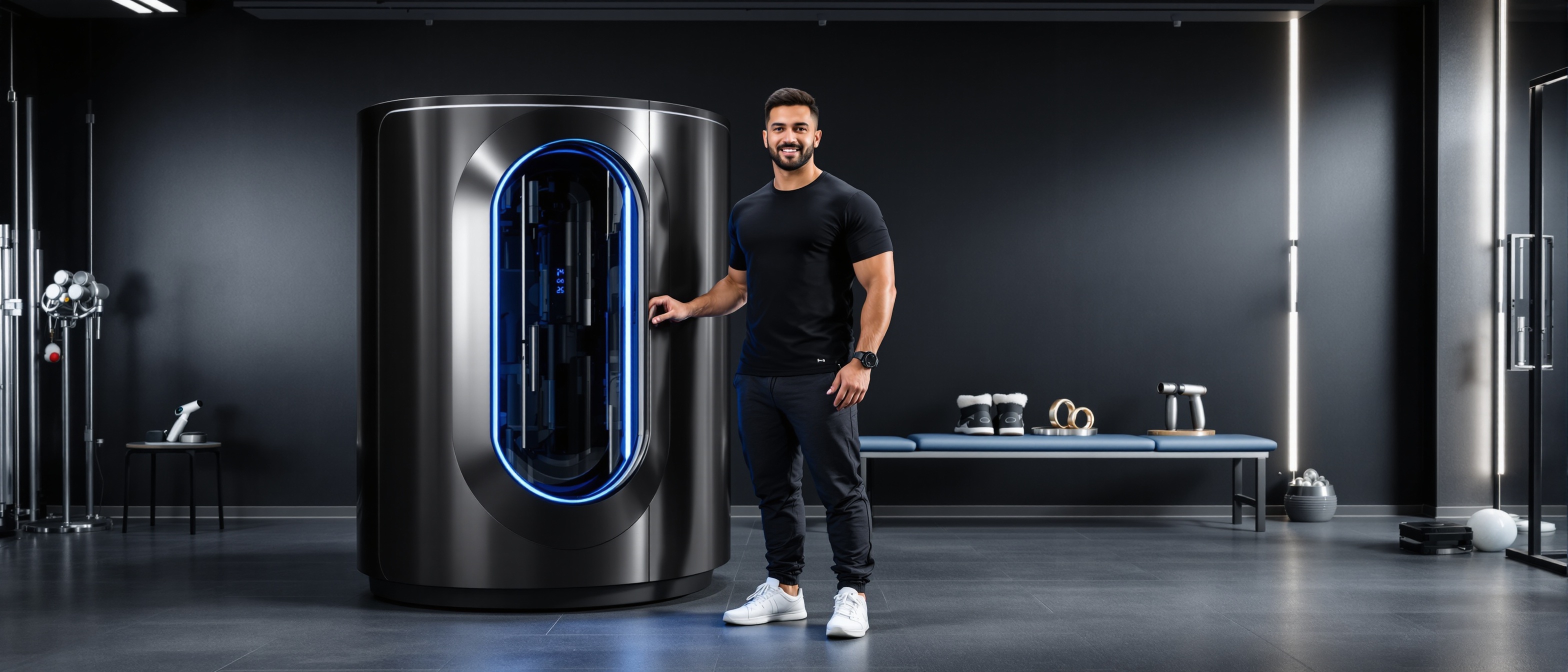The Dark Truth About Peptides Every Lifter Should Know
Your gym buddy swears by them. Instagram influencers hint at them. Underground forums buzz with testimonials. Peptides—those tiny chains of amino acids—have become the whispered secret of modern bodybuilding.
But here's what nobody's telling you: while peptides promise superhuman recovery and muscle growth, the reality is far more complicated than the hype suggests.
So what exactly are peptides doing in your local gym's parking lot conversations? And more importantly—should you care?
What Are Peptides and How Are They Used?
Think of peptides as your body's text messages. These short chains of amino acids carry specific instructions to your cells, telling them when to release hormones, repair tissue, or kick-start recovery processes.
The peptides causing all the buzz? Growth Hormone Releasing Peptides like GHRP-6, GHRP-2, and Ipamorelin. These compounds supposedly trick your pituitary gland into pumping out more growth hormone—without the obvious signs of traditional HGH use.
Sounds clever, right?
Bodybuilders inject these peptides (yes, we're talking needles) typically before bed or around workouts, chasing promises of faster recovery, better sleep, and accelerated muscle growth. Some report feeling like they're 22 again, bouncing back from brutal training sessions like it's nothing.
But here's where it gets interesting. Unlike anabolic steroids, which flood your system with synthetic hormones, peptides work more like… gentle nudges. They're supposed to coax your body into producing more of what it already makes.
The appeal is obvious: "Natural" enhancement that works with your body, not against it.
Except there's a catch. Actually, several catches.
Evidence for Performance and Recovery
Let's talk science. What does the research actually say about peptides for muscle building?
Here's the uncomfortable truth: most of the "evidence" comes from animal studies, small human trials for medical conditions, or underground forum testimonials. The robust, peer-reviewed research on healthy individuals using peptides for bodybuilding? It's surprisingly thin.
Some studies suggest that growth hormone releasing peptides can increase GH levels in certain populations. A 2024 review in medical literature found that specific peptides showed promise for muscle wasting conditions and age-related decline. But there's a massive leap from "helps elderly patients maintain muscle mass" to "turns you into a recovery machine."
The problem? Most peptide research focuses on medical applications—treating growth hormone deficiencies, muscle wasting diseases, or age-related decline. Taking these findings and applying them to healthy, trained individuals is like using cancer treatment studies to justify taking chemotherapy for a headache.
And here's what the peptide evangelists don't mention: your body already produces growth hormone naturally. If you're young, healthy, and training consistently, your GH levels might already be optimized through proper sleep, nutrition, and exercise.
So why are so many people convinced peptides work?
The placebo effect is incredibly powerful, especially when combined with improved sleep patterns (many users report better sleep) and the psychological boost of "doing something extra." When someone starts sleeping better and feels more motivated, their training and recovery naturally improve.
But correlation isn't causation. And that leads us to the bigger problem…
Risks, Side-Effects, and Legal Issues
Here's where the peptide story gets really uncomfortable.
First, the legal reality: Most peptides used for bodybuilding aren't approved by the FDA for human use. That GHRP-6 or Ipamorelin your training partner is using? It's likely from a research chemical company that explicitly states "not for human consumption" on the label.
You're essentially becoming a test subject in an uncontrolled experiment.
The World Anti-Doping Agency banned these substances for good reason. But even if you're not competing, the risks are real:
Quality control is a nightmare. Unlike FDA-regulated medications, peptides from research companies undergo minimal testing. Contamination, incorrect dosing, and degraded products are common problems. You might be injecting something completely different from what's on the label.
Side effects can be serious. Users report water retention, numbness in extremities, increased hunger (sometimes to uncomfortable levels), and potential impacts on natural hormone production. Some experience "peptide flu"—fever, fatigue, and joint pain that can last days.
Long-term effects are unknown. What happens when you artificially boost growth hormone levels for months or years? We simply don't know. Your body's hormone system is incredibly complex, and disrupting it can have cascading effects that might not appear for years.
Injection risks. Every injection carries risks of infection, nerve damage, or injection site reactions. And if you're sharing information (or supplies) with others, you're entering even riskier territory.
But perhaps the biggest risk is psychological. Peptides can become another crutch—something external you "need" to perform or recover properly. This mindset can undermine the fundamentals that actually drive results.
Expert Perspectives and Alternatives
So what do the professionals say?
Sports scientists and endocrinologists are largely skeptical of peptide use in healthy individuals. Dr. Harrison Pope, a Harvard researcher who studies performance-enhancing substances, notes that "the risk-benefit ratio simply doesn't make sense for recreational users."
The consensus among experts? If you want to optimize growth hormone naturally, focus on:
Sleep optimization. Growth hormone is primarily released during deep sleep. Most people would see bigger benefits from fixing their sleep than from any peptide protocol.
Proper nutrition timing. Strategic carbohydrate and protein intake around training can optimize your natural hormonal response to exercise.
Stress management. Chronic stress crushes growth hormone production. Meditation, adequate rest between sessions, and managing life stress will do more than any injection.
Progressive overload. The most powerful "peptide" is still a well-designed training program that progressively challenges your body.
For those fixated on supplements, there are legal, researched alternatives:
- Creatine monohydrate remains the most effective supplement for strength and muscle building
- Protein supplementation can support recovery when dietary intake is inadequate
- Vitamin D, magnesium, and zinc support natural hormone production when deficient
But here's what most people don't want to hear: these basics aren't sexy. They don't promise dramatic overnight changes. They require consistency, patience, and trust in the process.
Peptides offer the seductive promise of a shortcut. But in fitness, as in most areas of life, shortcuts often lead nowhere—or somewhere you didn't want to go.
TL;DR:
• Peptides like GHRP-6 and Ipamorelin are popular in bodybuilding but aren't FDA-approved for human use • Scientific evidence for muscle-building benefits in healthy individuals is limited • Quality control, legal status, and side effects present significant risks • Natural optimization through sleep, nutrition, and training remains safer and more sustainable • The basics still beat the shortcuts—even when the shortcuts come with syringes
The human body is remarkably good at building muscle and recovering from training when given the right inputs: adequate protein, progressive challenge, proper rest, and time. Before you start injecting research chemicals, ask yourself: have you truly maximized these fundamentals?
Because if you haven't mastered the basics, no peptide protocol will save you. And if you have mastered them, you probably don't need the shortcuts anyway.
The choice, as always, is yours. But make it an informed one.
Sources
https://www.boostcamp.app/blogs/most-popular-free-workout-routines-from-reddit





